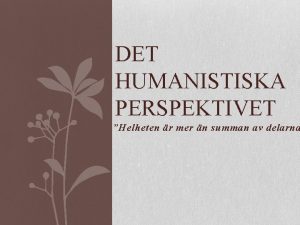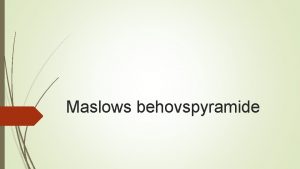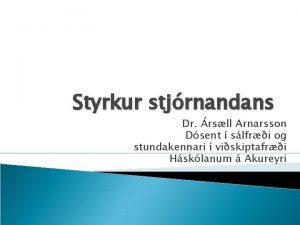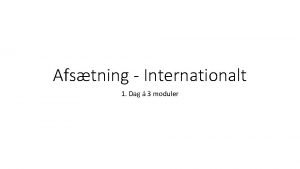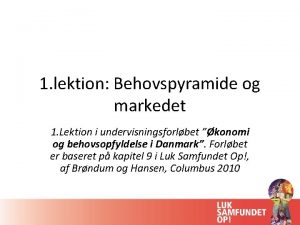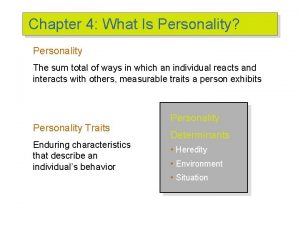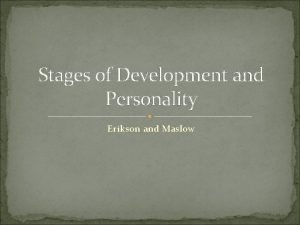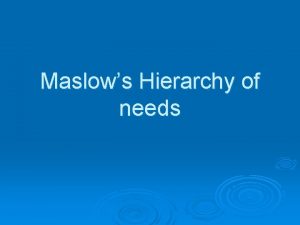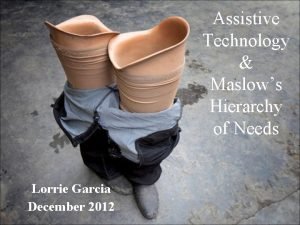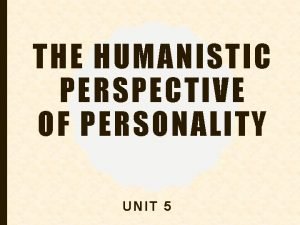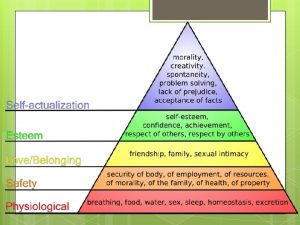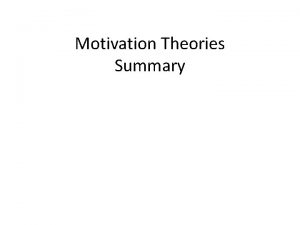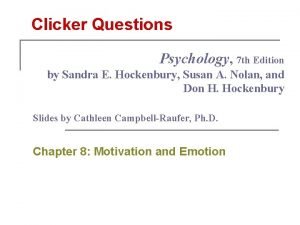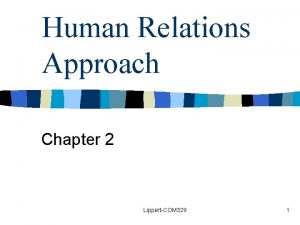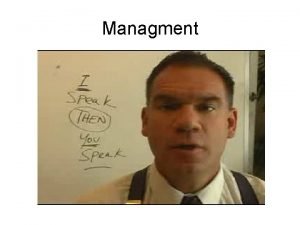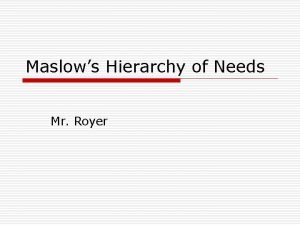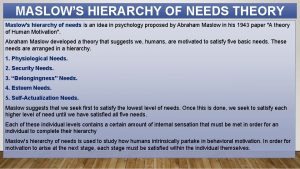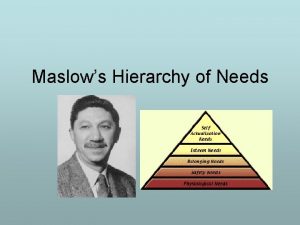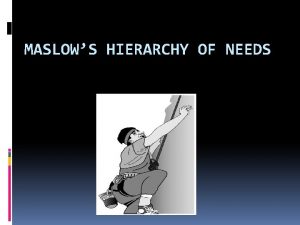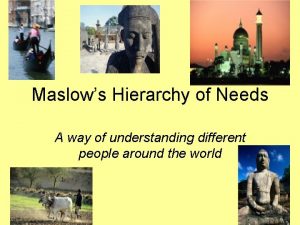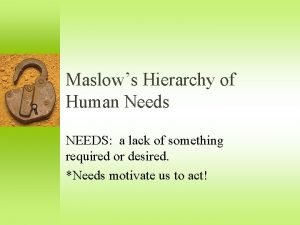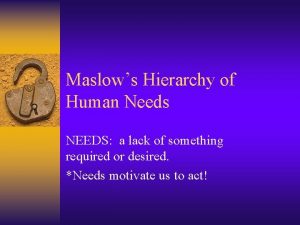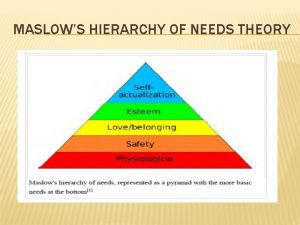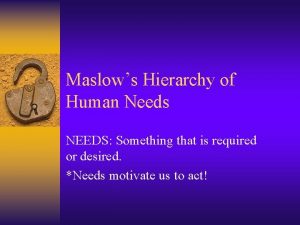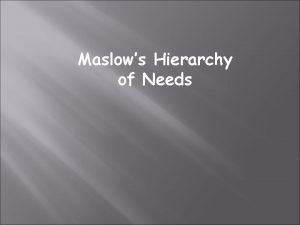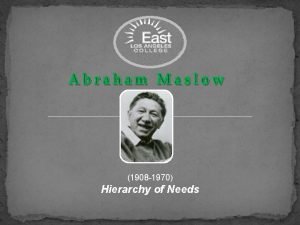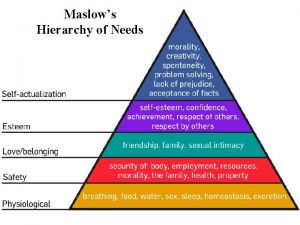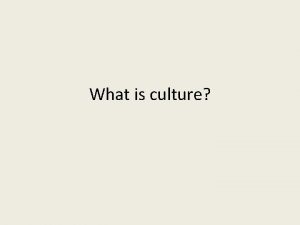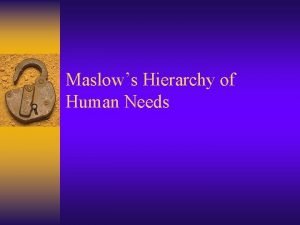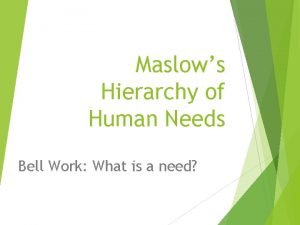Maslows Hierarchy of Needs A way of understanding

























- Slides: 25

Maslow’s Hierarchy of Needs A way of understanding different people around the world

WHO? • Abraham Maslow (American psychologist) • was born in 1908, Brooklyn, New York • Developed a theory of human needs – Hierarchy of Needs • Theory has influenced a number of fields, including education • Humanistic approach: interested in the welfare of humans & their motivations, behaviors, & attitudes

WHAT: Maslow’s Hierarchy of Needs Self. Actualization Status (Self-Esteem) Social (Sense of Belonging) Security Survival Source: http: //www. ohrd. wisc. edu/msdresources/tools/2

Hierarchy of Needs growth emotional physical

Hierarchy of Needs Physiological Needs

Survival/Physiological Needs • food • water • air • sleep

Food: A Most Powerful Need • South American Rugby team crashed in 1970 • Food was the most pressing problem. • They ate human flesh for survival. • Even the strongest taboo was broken to fill the basic need for food.

Hierarchy of Needs Safety Needs Physiological Needs

Security/Safety Needs • from physical attack • from emotional attack • from fatal disease • from invasion • from extreme losses (job, family members, home, friends)

Security/Safety: A Most Powerful Need • when frightened, our thoughts and energies are diverted • threat of, or actual attack creates “fight or flight” reaction • threats to safety can be physical or emotional

Fight or Flight

Hierarchy of Needs Love & Belonging Needs Safety Needs Physiological Needs

Love and Belonging (social/emotional) • Inclusion - part of a group: colleagues, peers, family, clubs • Affection - love and be loved • Control - influence over others and self

Love and Belonging: A Most Powerful Need

Hierarchy of Needs Esteem Needs Love & Belonging Needs Safety Needs Physiological Needs

Esteem Needs emotional (ego) • respect from others through: awards honors status • respect for self through: mastery achievement competence

Esteem from Self and Others: A Most Powerful Need Congratulations

Self-Actualization Needs • stop cruelty and exploitation • encourage talent in others • try to be a good human being • do work one considers worthwhile • enjoy taking on responsibilities • prefer intrinsic satisfaction • seek truth • give unselfish love • be just

Some Self-Actualizing People from History? • • • Abraham Lincoln Thomas Jefferson Mahatma Gandhi Albert Einstein Eleanor Roosevelt Who else?

Peak Experiences Moments of Pure Bliss

Hierarchy of Needs Self-Actualization Needs Deficiency Needs (D -Needs) Being Needs (B-Needs): Higher needs Esteem Needs Love & Belonging Needs Safety Needs Physiological Needs This means Self Actualization only becomes important once all other needs are met or almost met


Think about the levels… 1. You worked hard on your 5 Themes of Geography Mind Map the other day. Mrs. Nguyen praised your neighbor’s Mind Map in front of the whole class. You know that your Mind Map is better. This bothers you. What is going on? 2. If you are simultaneously hungry for food and also want to be a computer programmer, which need will be more important? 3. You have a long homework assignment, but armed rebels are raiding your neighborhood, which need will be more important? 4. You finally get up the confidence to ask someone to homecoming and they say no. This upsets you. Why?

Criticism • “Here’s the problem with Maslow’s hierarchy, ” explains Rutledge. “None of these needs — starting with basic survival on up — are possible without social connection and collaboration. … Without collaboration, there is no survival. It was not possible to defeat a Woolley Mammoth, build a secure structure, or care for children while hunting without a team effort. It’s more true now than then. Our reliance on each other grows as societies became more complex, interconnected, and specialized. Connection is a prerequisite for survival, physically and emotionally. ”

Homework: Maslow Current Event • Research a current issue in the news today – print out a hard copy and bring it into class • Describe what levels of Maslow’s Hierarchy of Needs are: 1. being met and 2. NOT met, 3. PLUS what is needed to move the situation to the next level on the hierarchy (more needs met) 4. Explain your answer
 Svag paternalisme eksempel
Svag paternalisme eksempel Maslow's theory maintains that:
Maslow's theory maintains that: Kritik mot det humanistiska perspektivet
Kritik mot det humanistiska perspektivet Maslows behovspyramide eksempler
Maslows behovspyramide eksempler þarfapýramídi maslows
þarfapýramídi maslows Maslows behovspyramide
Maslows behovspyramide Behovspyramiden maslow
Behovspyramiden maslow Maslows behovstrappa wifi
Maslows behovstrappa wifi Pssp hierarchy of needs
Pssp hierarchy of needs Higher level needs
Higher level needs Erik erikson pyramid
Erik erikson pyramid Maslow's hierarchy of needs entertainment
Maslow's hierarchy of needs entertainment Maslow's hierarchy of needs interior design
Maslow's hierarchy of needs interior design Maslow's hierarchy of needs technology
Maslow's hierarchy of needs technology Video on maslow's hierarchy of needs
Video on maslow's hierarchy of needs Psychological approach in literature
Psychological approach in literature The peak of maslow's hierarchy of needs pyramid represents
The peak of maslow's hierarchy of needs pyramid represents Maslow's hierarchy of needs parenting
Maslow's hierarchy of needs parenting Humanistic perspective on personality
Humanistic perspective on personality Maslow hierarchy of needs
Maslow hierarchy of needs Hierarchy of emotions
Hierarchy of emotions Abraham maslow hierarchy of needs summary
Abraham maslow hierarchy of needs summary The lowest level in maslow's hierarchy of needs emphasizes:
The lowest level in maslow's hierarchy of needs emphasizes: Abraham maslow developed his hierarchy of needs
Abraham maslow developed his hierarchy of needs Harvard anglia 2008
Harvard anglia 2008 Humanistik maslow
Humanistik maslow


